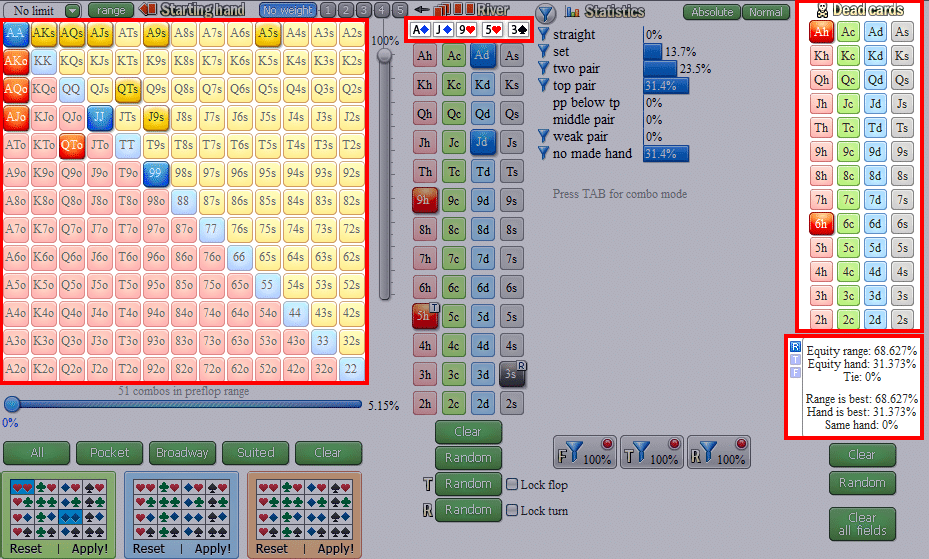Poker Basic Hands
The 1st or 2nd card of the hand has been dealt face-up or exposed. 2 or more cards have been exposed when being dealt. 2 or more boxed cards (improperly faced cards) are found. 2 or more extra cards have been dealt in the starting hands of a game. An incorrect number of cards have been dealt to a player, except the top card may be dealt if it goes to the player in proper sequence. Those poker hands are pair of aces (AA), pair of kings (KK), pair of queens (QQ), pair of jacks (JJ) and AK usually in that order. These poker hands are widely considered the power five in Hold’em and most of the time you’ll be playing these poker hands every time those cards are dealt to you.
- Poker is a mathematical game, and it’s a game of incomplete information. That may sound complicated, but it really isn't. On a very basic level, winning poker starts with the selection of which starting hands to play. If you enter the pot with the best hand more often than your opponents do, you will win more times than your opponents.
- Poker is any of a number of card games in which players wager over which hand is best according to that specific game's rules in ways similar to these rankings.Often using a standard deck, poker games vary in deck configuration, the number of cards in play, the number dealt face up or face down, and the number shared by all players, but all have rules that involve one or more rounds of betting.
Check-raise is permitted in all games, except in certain forms of lowball.
In no-limit and pot-limit games, unlimited raising is allowed.
Unlimited raising is allowed in heads-up play. This applies any time the action becomes heads-up before the raising has been capped. Once the raising is capped on a betting round, it cannot be uncapped by a subsequent fold that leaves two players heads-up.
Any wager must be at least the size of the previous bet or raise in that round, unless a player is going all-in.
If someone is 'all in', how much of the pot can they win? A person who is all in can win the amount of the pot that they have invested. Any additional bet starts a new 'side pot' and can only be won by players contributing to that pot.
The smallest chip that may be wagered in a game is the smallest chip used in the antes, blinds, rake, or collection.
A verbal statement denotes your action and is binding.
Rapping the table with your hand is considered a pass.
Deliberately acting out of turn will not be tolerated. A player who checks out of turn may not bet or raise on the next turn.
To retain the right to act, a player must stop the action by calling 'time'. Failure to do so may cause you to lose the right to act. You can’t forfeit your right to act if any player in front of you has not acted, only if you fail to act when it legally becomes your turn. A player who bets or calls by releasing chips into the pot is bound by that action.


What Beats What In Poker Printable
In limit poker, if you make a forward motion with chips and thus cause another player to act, you may be forced to complete your action.
What Are Good Starting Poker Hands
To protect your right to raise, you should either declare your intention verbally or place the proper amount of chips into the pot.
Poker Basics Hands Signals
If you put a single chip in the pot that is larger than the bet, but do not announce a raise, you are assumed to have only called so make sure you know what you are putting in the pot.
All wagers and calls of an improperly low amount must be brought up to proper size if the error is discovered before the betting round has been completed. In poker you must be alert and fully aware of what you are doing at all times.